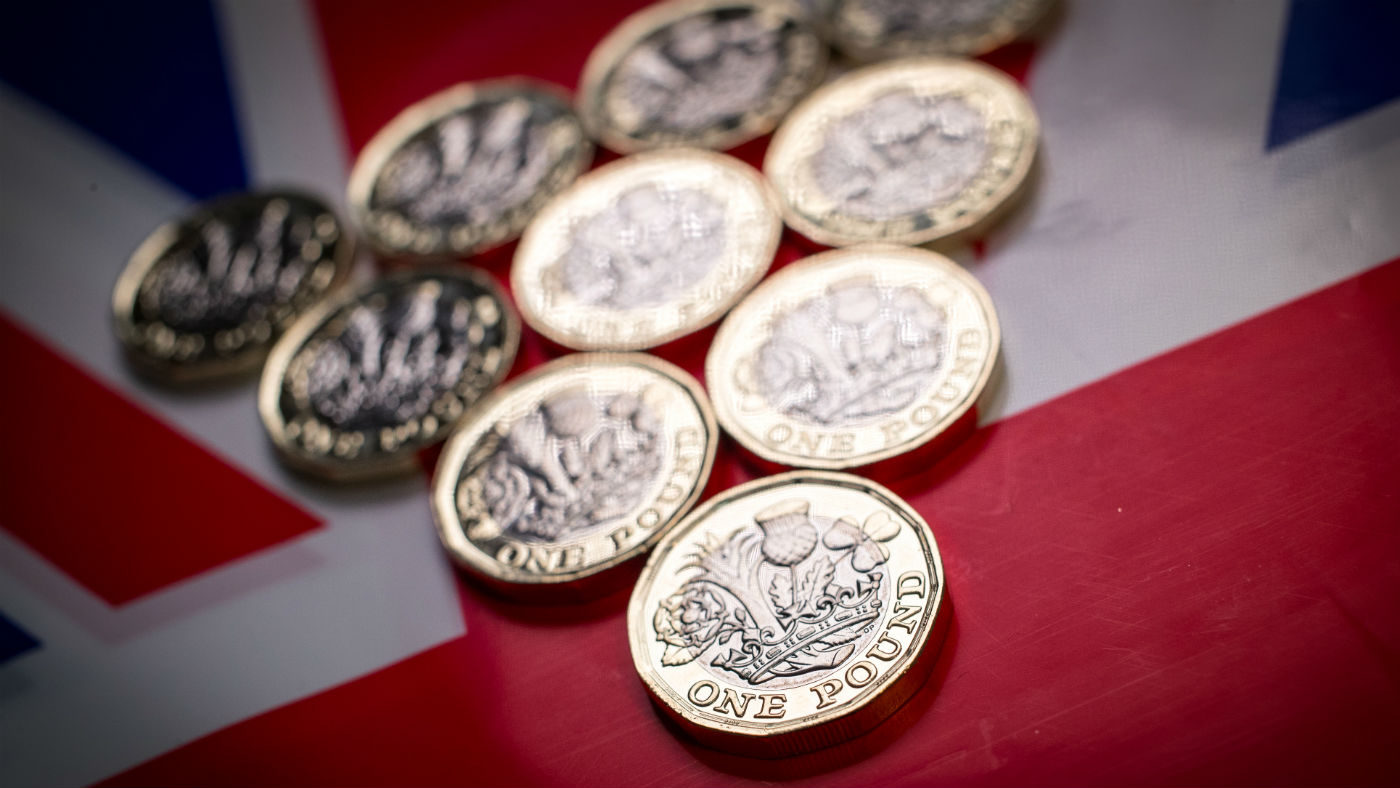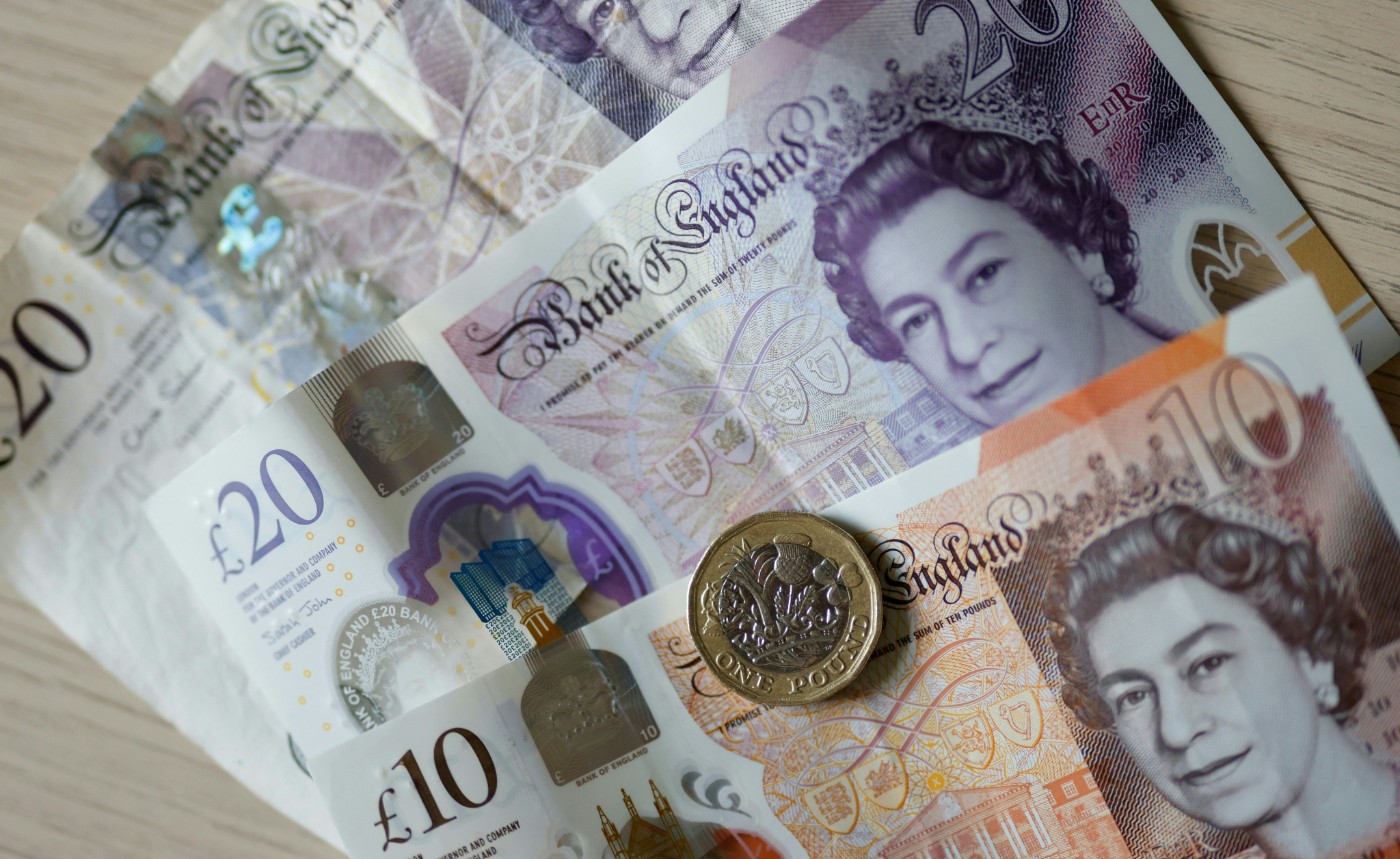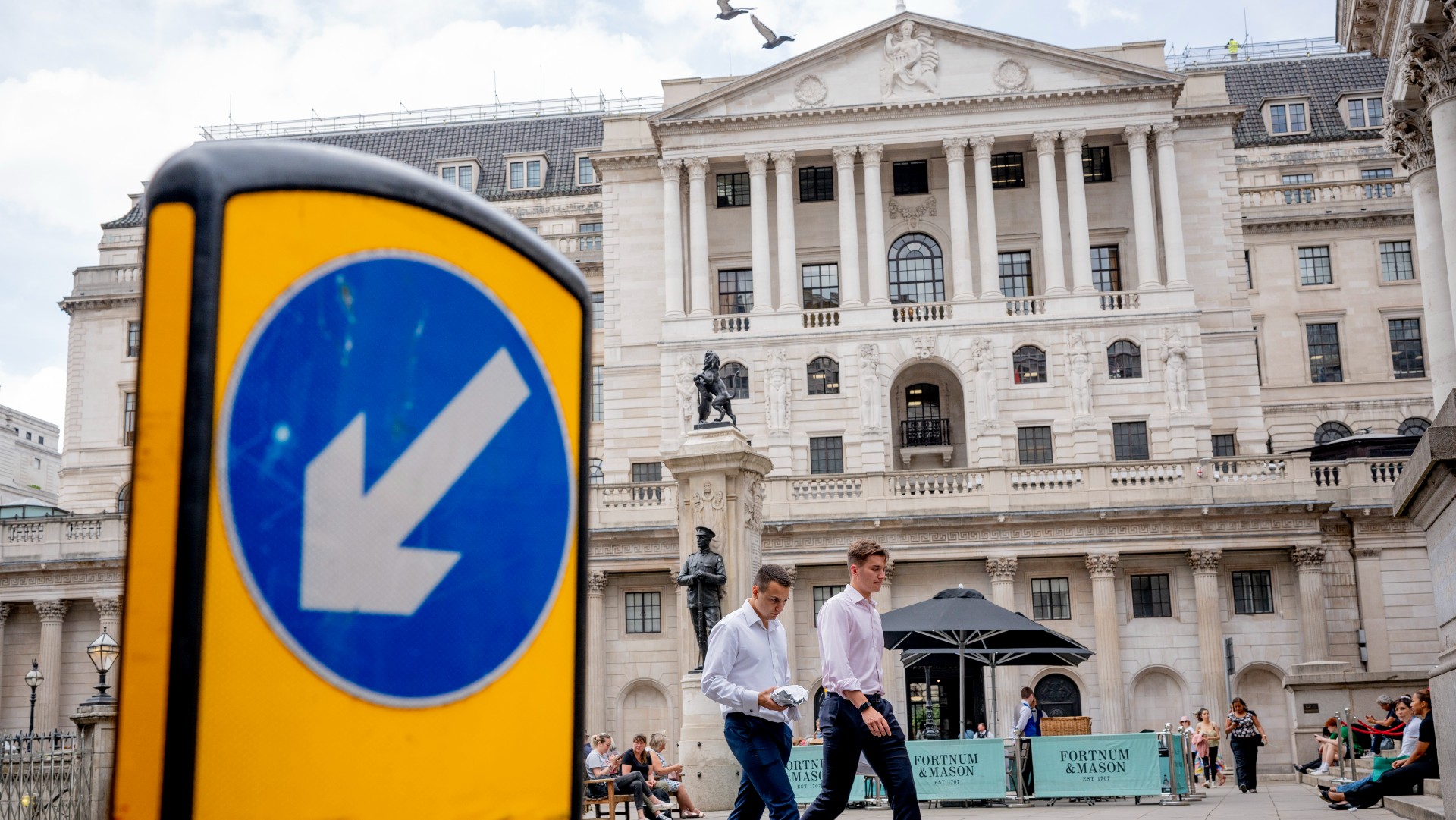Brexit: how will it impact the pound?
Sterling drops to lowest value in more than three decades as Parliament prepares for prorogation

A free daily email with the biggest news stories of the day – and the best features from TheWeek.com
You are now subscribed
Your newsletter sign-up was successful
The pound has plummeted to a 34-year low as Westminster gears up for one of its most tumultuous months in recent history.
MPs are trying to prevent Boris Johnson from forcing through a no-deal following his announcement that Parliament is to be suspended, while the prime minister has signalled that he may call a snap general election on 14 October. The unrest has seen sterling fall below $1.20, hitting a low of $1.1959 on Tuesday morning.
As The Telegraph notes, that is the lowest value against the dollar since 1985, disregarding the so-called flash crash produced by trading errors in October 2016.
The Week
Escape your echo chamber. Get the facts behind the news, plus analysis from multiple perspectives.

Sign up for The Week's Free Newsletters
From our morning news briefing to a weekly Good News Newsletter, get the best of The Week delivered directly to your inbox.
From our morning news briefing to a weekly Good News Newsletter, get the best of The Week delivered directly to your inbox.
Jane Foley, senior currency strategist at Rabobank, told the BBC that markets were reacting to speculation over whether efforts to stop no-deal would succeed, amid reports that a number of Conservative MPs intend to defy the PM and vote against his plans.
“Currency markets as a rule do not like political uncertainty,” she added. “What would appease investors is if legislation that would prevent no deal was passed.”
The euro is also feeling the effects of the Westminster row, falling to a 28-month low against the US dollar at $1.092.
As Kit Juckes of French bank Societe Generale says, Brexit uncertainty is “reaching new heights” and is dragging the “terrible twins” of sterling and the euro lower.
A free daily email with the biggest news stories of the day – and the best features from TheWeek.com
So what is the future outlook for the UK’s currency as Britain prepares to quit the EU on 31 October with or without a deal?
How has the pound fared since the Brexit referendum?
The pound has been on a roller-coaster ride since the Brexit vote. In the immediate aftermath of the Leave victory in the June 2016 referendum, sterling experienced its largest intra-day collapse in 30 years, says online brokerage firm IG.
Prior to the vote on leaving the EU, the pound had bought around $1.50 and roughly €1.32. Directly afterwards, it reached lows of $1.32 and €1.20.
After falling further still – reaching $1.2049 in January 2017 and dropping again two months later when May triggered Article 50 – sterling enjoyed a gradual recovery in 2017, nearing pre-vote levels in early 2018.
But these gains were lost over the following 12 months, as May’s failure to break the Westminster deadlock fuelled fears of a potential no-deal departure and the damaging consequences that could have for the British economy.
These worries have been compounded this week as the battle in Westminster intensifies.
Why is Brexit affecting the pound?
In recent years, “traders have been looking at politics, rather than economic data, which means faster trading, and a faster pace of change in the price”, says the BBC.
“If you think about political uncertainty being bad, the worst outcome is a hard Brexit,” Jane Foley, senior currency strategist at Rabobank, told the broadcaster. Details about what will happen under those circumstances are scarce, adding to anxiety among investors.
What are the potential consequences?
In July, the Confederation of British Industry (CBI) warned that UK firms were simply not ready for a no-deal Brexit, which could prove disastrously expensive for both companies and consumers.
The value of the pound affects the price of the UK’s imports, such as food and raw materials, and its exports, such as cars. So while a fall in sterling’s value might help some exporters, “the knock-on effects are that our weekly food shops and our overseas holidays are likely to become more expensive”, City A.M. reports.
In August, Nigel Green, founder of financial consultancy firm the deVere Group, told the Daily Express that sterling had “taken another pounding after the UK’s economy was shown to have contracted in the second quarter, adding to the economic woes on top of no-deal Brexit concerns”.
“The pound has fallen more than 4.5% against the dollar in July and August over fears Boris Johnson’s government is pushing the country towards a no-deal Brexit –which most economists think would be economically damaging,” he added. “Should the UK leave with no-deal, the pound is likely to remain weak for several years until the country and the EU readjusts.”
What will happen next?
The fall in the value of sterling now constitutes a trend since the beginning of May, says BBC economics editor Faisal Islam. “This will mean rising consumer prices,” he warns.
Indeed, the slump could add one percentage point to inflation, enough to make the Bank of England think twice about the interest rates it sets, Islam predicts.
The Guardian claimed earlier this year that the pound “could rise by as much as 10% if a no-deal Brexit is averted, but ... could also fall by a similar amount if Britain crashes out”.
-
 How the FCC’s ‘equal time’ rule works
How the FCC’s ‘equal time’ rule worksIn the Spotlight The law is at the heart of the Colbert-CBS conflict
-
 What is the endgame in the DHS shutdown?
What is the endgame in the DHS shutdown?Today’s Big Question Democrats want to rein in ICE’s immigration crackdown
-
 ‘Poor time management isn’t just an inconvenience’
‘Poor time management isn’t just an inconvenience’Instant Opinion Opinion, comment and editorials of the day
-
 Can the UK avoid the Trump tariff bombshell?
Can the UK avoid the Trump tariff bombshell?Today's Big Question President says UK is 'way out of line' but it may still escape worst of US trade levies
-
 Five years on, can Labour's reset fix Brexit?
Five years on, can Labour's reset fix Brexit?Today's Big Question Keir Starmer's revised deal could end up a 'messy' compromise that 'fails to satisfy anyone'
-
 Why au pairs might become a thing of the past
Why au pairs might become a thing of the pastUnder The Radar Brexit and wage ruling are threatening the 'mutually beneficial arrangement'
-
 Brexit: where we are four years on
Brexit: where we are four years onThe Explainer Questions around immigration, trade and Northern Ireland remain as 'divisive as ever'
-
 Is it time for Britons to accept they are poorer?
Is it time for Britons to accept they are poorer?Today's Big Question Remark from Bank of England’s Huw Pill condemned as ‘tin-eared’
-
 Is Brexit to blame for the current financial crisis?
Is Brexit to blame for the current financial crisis?Talking Point Some economists say leaving the EU is behind Britain’s worsening finances but others question the data
-
 What the pound’s record low means for the UK
What the pound’s record low means for the UKfeature Weak currency means higher prices and prospect of big interest rate hike
-
 Can looming UK recession be averted?
Can looming UK recession be averted?feature Experts say indirect impacts of Queen’s death could tip fragile economy over the edge